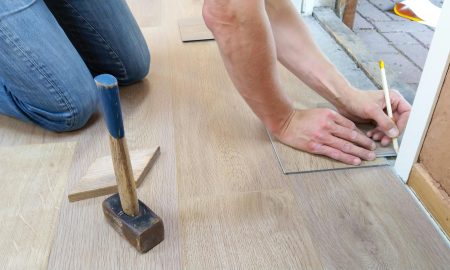Owning a home has long been a significant goal for many people, but with the U.S. housing market’s recent volatility and unpredictable interest rates, this dream can seem out of reach. In March 2024, home prices rose by 4.8% compared to the previous year, with a median selling price of $420,321, making it increasingly challenging to afford a home. The national average for a 30-year fixed-rate mortgage is 6.8%, up 0.3 points from the previous year, resulting in significantly more expensive monthly mortgage payments for potential homebuyers.
However, despite these challenges, there are ways to prepare for homeownership. With a well-planned savings and earning strategy, you can stay on track to achieve your goal of owning a home sooner than you might think. Although it may seem impossible, it’s crucial to remain optimistic and get creative in this challenging environment. Let’s check out some some tips and strategies to help you prepare for homeownership and make your dream a reality.

What You Can Do Right Now to Save for a House
Saving for a house can be a daunting task, but with a little planning and budgeting, it can be achievable. Here are some steps you can take right now to start saving for your dream home:
- Set a Savings Target: The first step in saving for a house is to set a savings target. You should research and lock in on a realistic number, which will vary based on your home type, region, and other factors. Expenses to anticipate include the down payment, closing costs on the mortgage loan, inspection costs, and moving costs. If you have an older home or a fixer-upper in mind, also consider any initial repairs you’ll need to make before you move in.
- Connect with a Loan Officer: It’s important to connect with a loan officer who has experience working with first-time homebuyers and can get you started on a plan. Attending a local first-time home buying seminar is a great way to learn what types of down-payment assistance programs might be available in the local area. Many people believe you need 20% down, but there are several loan options, especially for first-time homebuyers, where 3% down is an option.
- Create a Realistic Savings Budget: Once you have a realistic home price in mind, you can work backward by setting a realistic savings budget. With a goal of a home in mind, you might be more motivated to set a budget and finally stick to it. It’s crucial to know your income, expenses, and where your money goes. This insight allows you to figure out how much you can set aside for saving towards a home. Numerous apps are available to assist with this financial analysis and budgeting process, such as Empower (formerly Personal Capital), YNAB, and Monarch.
By following these steps, you can start saving for your dream home today. Remember to stay motivated and disciplined in your savings plan, and you’ll be on your way to homeownership in no time.

Working Towards Your Goals
To achieve your financial goals, it’s important to develop good money habits. Here are some habits you can implement now to work toward your goals:
- Automate your savings: Automating contributions to your savings account removes the manual effort and the temptation to spend that money elsewhere. Plus, those who automatically save at the start of the month often achieve their savings goals more successfully than those who manually save towards the end. Consider setting up automatic transfers from your checking account to your savings account each month.
- Earn extra income: To boost your income, consider leveraging skills you’re already proficient in for a side hustle or part-time gig. Seek to earn extra income to increase your saving potential.
- Change or eliminate poor money habits: Some habits that people can change to save a bit more money is to eat out less or only buy what is necessary. It’s the sacrifices you make now that will help build your future and have homeownership assist in wealth building via equity in your home. Work on eliminating anything outside your minimum living fixed cost and see if you can save by eliminating unnecessary expenses.
- Resist lifestyle creep: Defined as increasing your discretionary spending as your income grows, lifestyle creep can let instant gratification and retail therapy rob you of many long-term financial gains. Instead, plan in advance to save raises, tax refunds, and bonuses to pay down debt on high-interest loans, such as credit cards, or to throw it into your “home savings” fund. Paying off loans will free up money that can be redirected to your home savings. It will also help you increase your credit score, which may lower your interest rate when you eventually apply for a mortgage.
By implementing these habits, you can work toward achieving your financial goals and ultimately, homeownership. Remember, financial responsibility today can pay off in the long run.

Where to Keep Your Savings
When it comes to saving for a goal that’s less than five years away, it’s important to keep your money safe and readily available. One way to do this is by depositing your money into a high-yield savings account or exploring current rates for certificates of deposit (CDs). Money market accounts are also a good option.
For those who have long-term goals, tax-advantaged retirement accounts like the 401(k), TSP, and IRA can be leveraged. Some workplace retirement plans, such as 401(k)s, offer options like penalty-free withdrawals for first-time homebuyers or loans that can be used towards buying a house.
While withdrawing funds from retirement accounts may have penalties if taken out before retirement age, getting a loan from your retirement plan may be beneficial. This allows you to bank yourself and automate repayment directly from your future paychecks.
However, this approach has pros and cons. If the stock market performs well during the years of your loan, you may miss out on potential earnings. On the other hand, these loans are usually at a lower interest rate than commercial banks offer and won’t impact your credit report.
Consider your goals and risk tolerance when deciding where to keep your savings. Keeping your money in a safe and accessible account is important for short-term goals, while leveraging retirement accounts may be beneficial for long-term goals.

More About Side Hustles
There are thousands of side hustle opportunities out there and most of them you can do online around your other commitments. Do you spend a lot of time scrolling on social media? Why not get paid for it? How about setting up an online business or tapping into digital products that are already done for you that you can market online? This is something that only needs to take one or two hours a day, but could really fast track your money saving goals. You can learn everything you need to know about how to set up an online business and get mentorship support here.
Or, do you have an interest in health and wellness? There are some fantastic health businesses that look for brand ambassadors to promote their products and you can earn money doing. Check out this 20 -year-old company that has created light therapy patches – all clinically proven – to help improve health and fitness.

More Money Management Tips
When it comes to buying a home, educating yourself about the process can help you make smarter savings and purchasing decisions. Researching different assistance programs in your area can also be beneficial. Many first-time homebuyer programs offer down payment assistance, lower interest rates, or other utility benefits. It’s important to research all the details, as some programs have residency requirements, tax implications, and other restrictions that may—or may not—work for your life plans.
If you receive an inheritance or a cash gift from a close relative or friend, it’s important to resist the urge to blow it on consumer purchases. While this cash does need to be appropriately documented for the loan, you can use it towards your down payment on a home. This can be a great way to take a surprise windfall and make the most of it.
Creating a monthly budget that pays for your fixed obligations and eliminates unnecessary expenses will give you the quickest path to homeownership. A budget will also help you develop the discipline needed to maintain your home for the long-term. Owning a home is a 30-year commitment, and there’s no landlord or building superintendent to call when something breaks. Instead, you’ll be responsible for regular maintenance and repairs, so it’s best to keep a healthy stash of cash for those seasonal and emergency needs.
Speaking with an expert in the field can provide valuable insights and guidance. Experts can help you learn as much as you can about the home buying process, mortgages, and the real estate market. This knowledge can help you make informed decisions and avoid common pitfalls.









